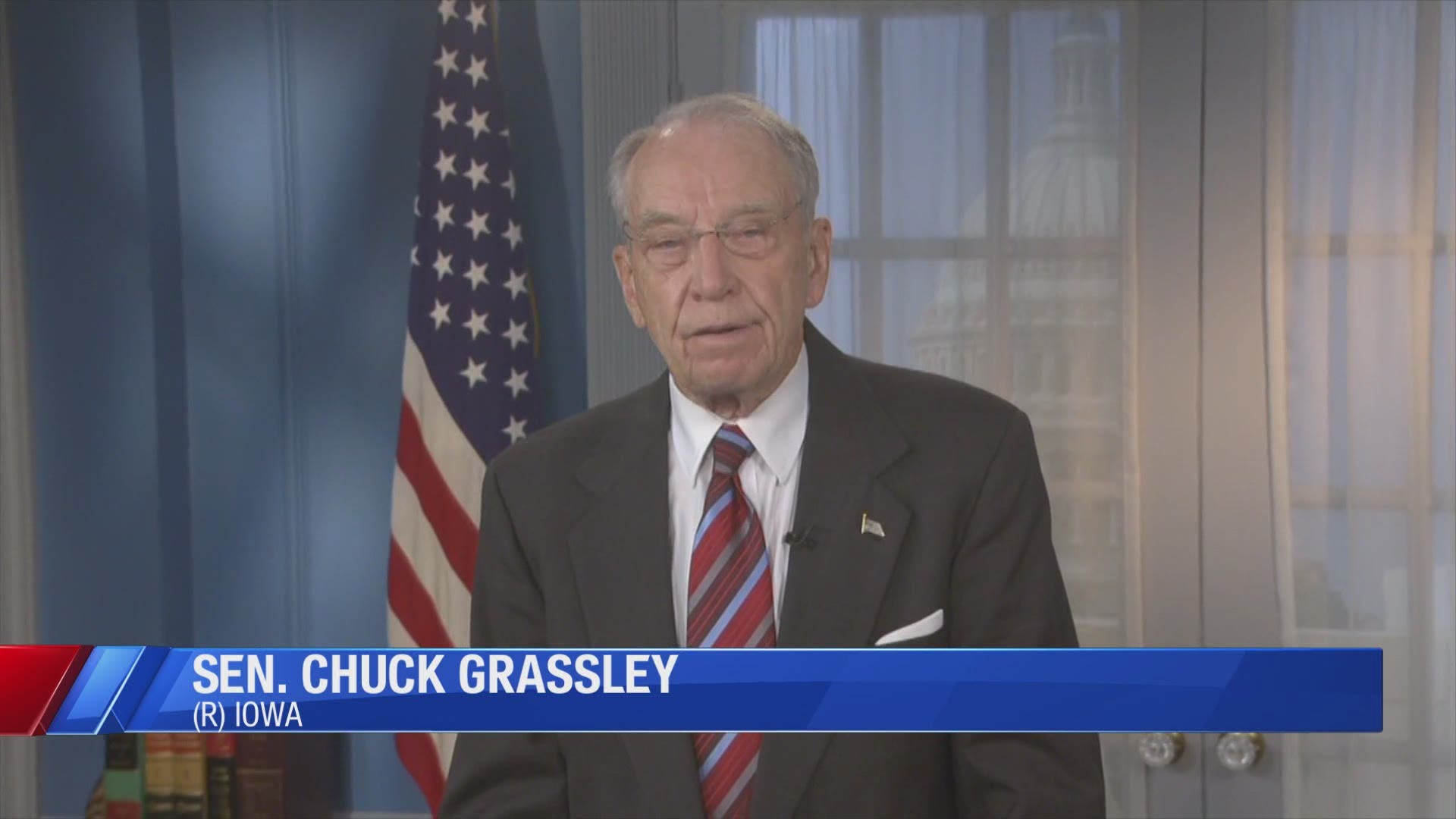DES MOINES, Iowa — As the late Justice Ruth Bader Ginsburg laid in repose at the U.S, Supreme Court, Iowa Republican Senator Chuck Grassley laid out his reasons for moving forward with finding her replacement.
During his call with the press Wednesday afternoon, Grassley had only kind words to say about Ginsburg.
"She made a big difference," Grassley said. "We'll be celebrating her and her life and remembering the great contribution she's made to equality among all people."
Grassley said on Monday that he would support the Senate Judiciary Committee moving forward with the vetting process once President Donald Trump selects his nominee to replace Ginsburg.
As the Judiciary Chairman in 2016, Grassley denied President Barack Obama's Supreme Court nominee Merrick Garland a chance for a committee hearing following the death of Justice Antonin Scalia.
Grassley remained adamant that the people, not the president, should decide on the next justice. In 2020, Grassley cited the White House and Senate both being in Republican control as the reason a nominee could be voted on.
"I'm not chairman of the committee," Grassley said Wednesday. "Chairman Graham is chairman of the Judiciary Committee, so that will be his decision."
That's the main difference between 2016 and 2020, according to Grassley.
South Carolina Sen. Lindsey Graham is the current chair of the Judiciary Committee. Graham and Senate Majority Leader Mitch McConnel, R-Kentucky, have pushed forward to get Trump's nominee confirmed.
Grassley said the other difference is that the government was divided in 2016.
"We had a divided government. We had a Republican Senate, we had a Democratic president."
Even after meeting with Garland in 2016, Grassley did not proceed witih a committee vote on his nomination.
"If you're asking why the Senate will move ahead under Graham's leadership on the committee and McConnell's leadership in the entire Senate, it's because this year we don't have that government," Grassley said.
Ultimately, Grassley reiterated that he isn't making the decision to move ahead with the nomination process — it's up to senators Graham and McConnell.
"But I am a member of the committee, so I don't miss committee meetings. And I have a responsibility to be there to question the nominee, and I'll be there doing that."
"And once the testimonies are done, I'll have to make up my mind and vote yes or no."
Grassley said that he can stay away from committee meetings if he wants to.
"But I don't think I'd be doing my job for the people of Iowa," Grassley explained.
Grassley said he's not sure when hearings would begin for the nominee, but he expects to know more after Saturday when the president announces his choice.
Download the We Are Iowa app or subscribe to Local 5's "5 Things to Know" email newsletter.

